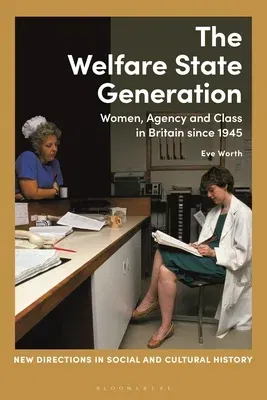Women born in mid twentieth-century Britain were the 'welfare state
generation' - not only were their lives fundamentally shaped by the
welfare state, they helped to transform it. In this ground-breaking
work, Eve Worth examines the impact of the welfare state on the life
course of women whose opportunities and social experiences were formed
by it in the post-1945 period.
Centred around an oral history study, this book argues that the welfare
state was so central to the lives of women born in Britain between the
late 1930s and early 1950s that they should be considered the 'welfare
state generation'. The post-war expansion of the welfare state was one
of the most transformative political changes of the twentieth century,
yet we know little about its development in practice, nor its long-term
impact on those who grew up within it. Using a ground-breaking life
history methodology to examine women from their birth in the long 1940s
to retirement in the mid-2010s, it includes thirty-six original life
history interviews alongside social surveys and the Census for wider
context
By deploying a cross-class approach, this book moves the discussion on
from just looking at university-educated women, to include women often
overlooked in gender and social studies.
Re-conceptualising the causes of social mobility in post-war Britain,
exploring a new understanding of work and an updated periodisation of
welfare state development, The Welfare State Generation offers a new
approach to the history of class and gender, arguing that we need to
move beyond the focus on women's emotions and personal identity, to
consider their experiences and relationships with the state as employer,
educator and provider.

